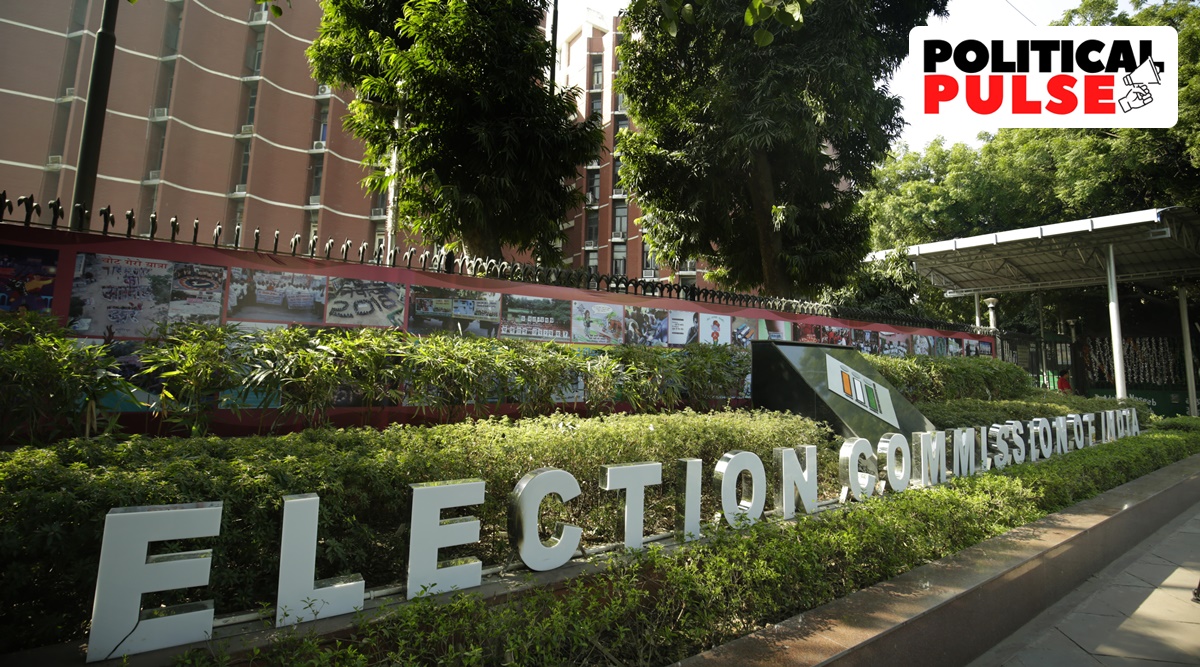‘Revdi’ debate: How EC revised poll code guidelines on freebies after 2013 SC order
The poll panel maintains that it cannot regulate what parties put on their manifestos even though some promises may have an ‘undesirable impact’.
 On July 5, 2013, the Supreme Court ordered the EC to frame guidelines on manifestos in consultation with recognised political parties and include them as part of the Model Code of Conduct (MCC). (Express photo by Praveen Khanna)
On July 5, 2013, the Supreme Court ordered the EC to frame guidelines on manifestos in consultation with recognised political parties and include them as part of the Model Code of Conduct (MCC). (Express photo by Praveen Khanna)The debate over freebies dominated Indian politics last week following Prime Minister Narendra Modi’s “revdi (freebie) culture” attack on the Opposition and it came to the fore again on Tuesday after the Supreme Court asked the Centre to “spell out its stand” on a petition seeking directions to regulate the distribution of freebies by political parties. But, when it comes to the issue of freebies, the Election Commission (EC) has largely maintained that it remains the decision of political parties and that it cannot regulate their policies.
The Supreme Court on Tuesday also asked the government to consult the Finance Commission on whether it is possible to check this by regulating the allocation of revenue to states. The court’s observations came on a petition on which it had issued a notice to the Centre and the EC in January. Responding to the notice, the EC said it had no power to regulate the same or take action against parties making such poll promises.
On July 5, 2013, the Supreme Court ordered the EC to frame guidelines on manifestos in consultation with recognised political parties and include them as part of the Model Code of Conduct (MCC). The court observed, “Although the law is obvious that the promises in the election manifesto cannot be construed as ‘corrupt practice’ under Section 123 of RP Act, the reality cannot be ruled out that distribution of freebies of any kind, undoubtedly, influences all people. It shakes the root of free and fair elections to a large degree. The Election Commission through its counsel also conveyed the same feeling both in the affidavit and in the argument that the promise of such freebies at government cost disturbs the level playing field and vitiates the electoral process and thereby expressed willingness to implement any directions or decision of this Court in this regard.”
Following the judgment, the EC set out to revise its guidelines on the poll code. But it maintained in guidelines issued in April 2015 that “while the commission agrees in principle with the point of view that framing of manifestoes is the right of political parties, it cannot overlook the undesirable impact of some of the promises”.
As part of the exercise to revise the MCC guidelines following the top court’s directions, the EC noted that the poll code contained some relevant provisions on corrupt practices by parties and candidates. It also observed practices in other democracies and analysed the manifestos and policy documents of political parties in other countries, regulatory mechanisms, and the role of electoral management bodies (EMBs) in enforcing norms to curb corruption.
In its analysis, the EC said manifestos normally indicate the broad policy of a political party or candidate on political, economic and social matters. “In Bhutan and Mexico, Electoral Authorities have power to vet manifestos and get certain types of content removed (as above). In the United Kingdom, the electoral authority issues guidelines for campaign materials (which would apply to manifestos also). In the United States (without a central EMB), the State-level EMB regulations generally do not include any provisions about political party platforms. It is the Party Committee which governs internally and develops the platform of a party for a particular election, as per the Charter and By-Laws of the party.”
The poll panel noted that while most democracies do not seem to have any legal provisions or guidelines specifically for manifestos, in countries such as the United Kingdom and the Netherlands “legal provisions applicable to offensive campaign material would seem to apply to content of manifestos as well”.
In terms of the regulatory mechanism, the EC observed that in the UK the electoral authority issues guidelines for campaign materials, which apply to manifestos as well, but it does not have any other role. In countries such as the US, Sweden, Canada, the Netherlands, and Austria, electoral authorities have no role in relation to manifestos, the EC noted, while parties in Bhutan and Mexico require the approval of their electoral authority before releasing manifestos.
On August 12, 2013, the EC held a meeting with the representatives of national and state-recognised parties at its headquarters in New Delhi on the formulation of guidelines for election manifestos. All six national parties attended the meeting while 24 of the 45 state-level parties invited turned up.
The poll panel sought the parties’ suggestions on a broad framework of guidelines on manifestos and freebies. It sought their proposals with regard to the timing of the manifestos’ release and suggested a mechanism to ensure compliance with the guidelines to be issued. It also asked the parties about their views on mentioning “freebies” in manifestos, keeping in view the Supreme Court’s observations and directions.
In the April 2015 guidelines, which were then incorporated in the “Model Code of Conduct for the Guidance of the Political Parties and Candidates”, the EC said, “The Commission has desired that whenever a political party releases Its manifesto for whichever election conducted by the Commission, a (hard) copy of the same along with a soft copy may be sent to the Commission for its record. This may be done for the elections conducted henceforth.”
- 01
- 02
- 03
- 04
- 05






























